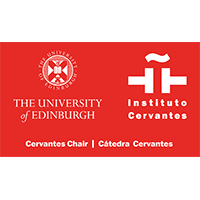Interview with Pepa San Martín, director of ‘Rara’.
Rara takes a highly topical and resonant issue – a ‘gay family’ – and presents the slow-motion ‘car crash’ of that family’s falling apart, due to the very human failings of its members. How did you come up to this story? [Am I correct in thinking it’s based on a true story?]
It is indeed. It was inspired by the case of Karen Atala, a judge who, many years ago now, lost custody of her children solely because she was a lesbian. Frustrated, especially considering she was a lawyer, she took the case to the International Court of Human Rights where, after a 10-year process, Chile was ordered to issue a public apology and provide the family with psychological support, as well as pay them compensation and ensure that this would never happen again in Chile. However, no-one can give back those 10 years she wasn’t allowed to be with her daughters.
Chile still doesn’t have ‘marriage for all,’ meaning that children from gay families don’t have the same filiation rights.
Why do you think it was important to tell such a story?
We wanted to create a story where there weren’t good guys or bad guys, life is more complicated than that. We wanted the characters to act out of love and, from that place, see their mistakes. Fear of what is different is still very engrained in us.
Does the film convey an important message about contemporary society in Chile?
More than a message, it’s a reflection of the society that we’re building and where we want to take it.
What, for you, is the significance of the title?
I grew up hearing certain people being referred to as ‘weird’, so I asked what it means to be weird. I was told it means someone is different. I thought, I like to be different, but I never told anyone this.
The film seems optimistic about the greater openness and tolerance of the younger generation; would you agree? Did you intend to suggest this as a more optimistic and hopeful outlook for the future?
I think structural changes are present among the younger generations and that is the future.
Did you intend the film to be a commentary on the increasing ‘normalisation’ [gay marriage, etc] of queer relations in many societies and the succumbing of queer relations to heteronormative models, or ‘homonormativity’ as some commentators have started calling it?
I think homosexuals still feel like they’re sort of on trial by society and that to be ‘accepted’ or ‘tolerated’, there are certain imposed norms we need to respect. We should be very friendly, successful, kind, good kids, good friends, and if we do all this, we’re in. But if we’re missing something, the outlook changes. There’s still a long way to go in achieving equal treatment.
How do you see the film in relation to other films being made in Chile, and in Latin America more widely, that deal with queer issues?
Human rights is a matter that’s on Latin America’s political agenda and this is reflected in films. It’s not a coincidence that many Latin American films are based on real events.
Buy your tickets for the screenings in Edinburgh and in Glasgow.

















